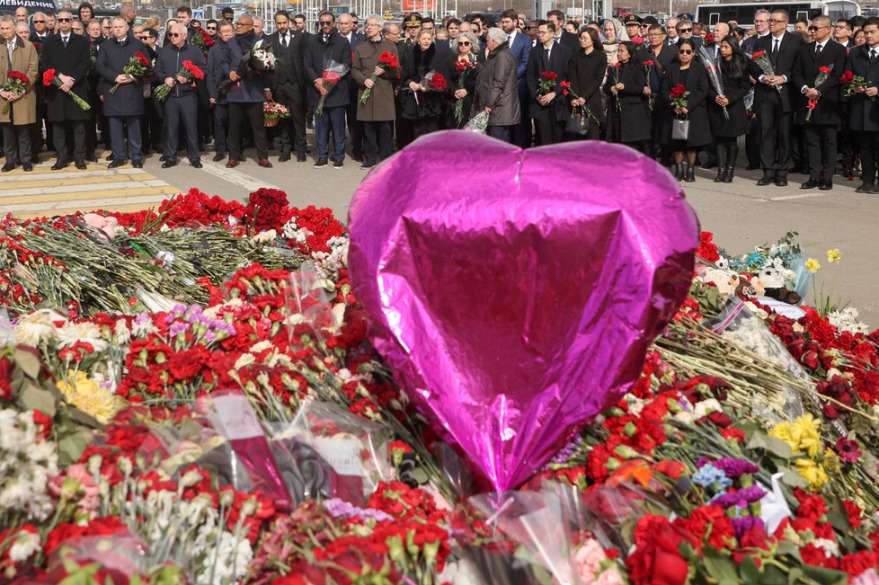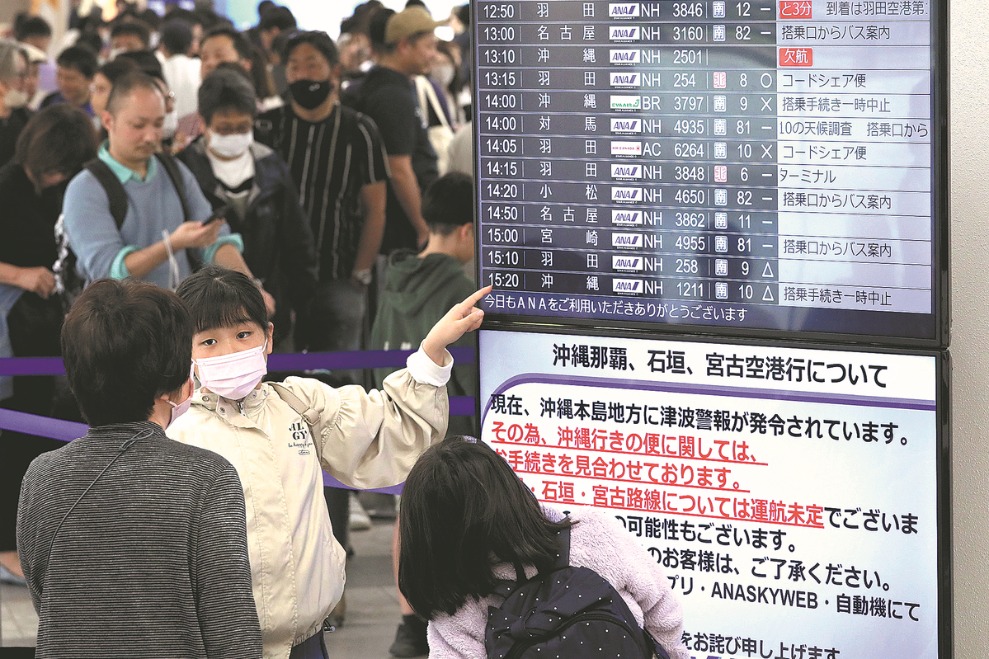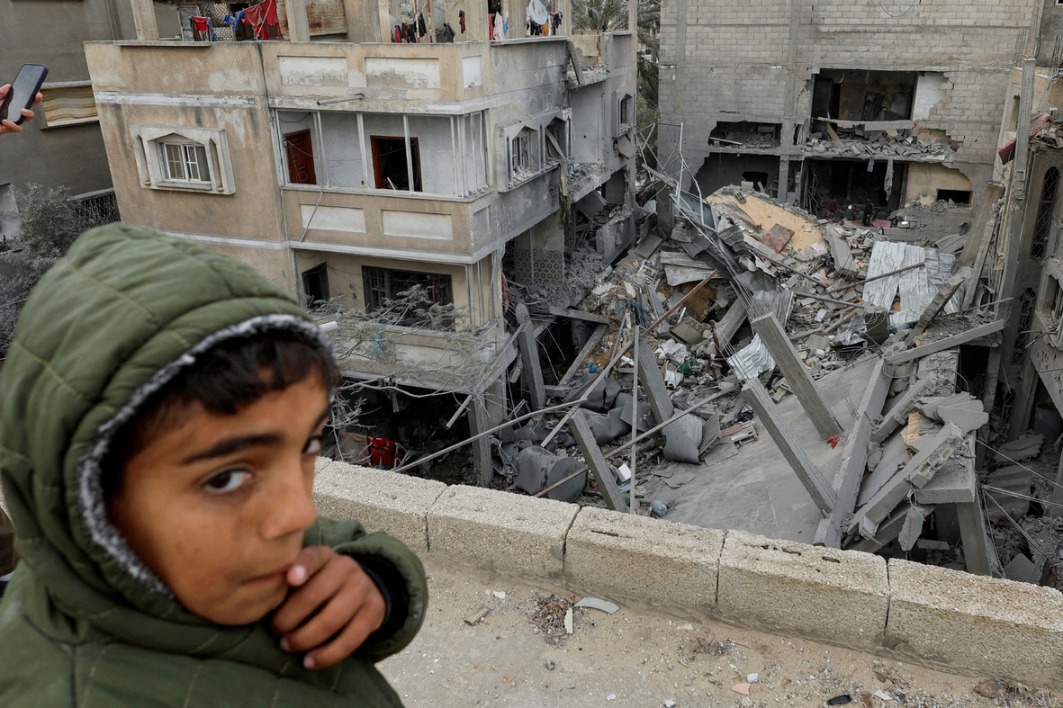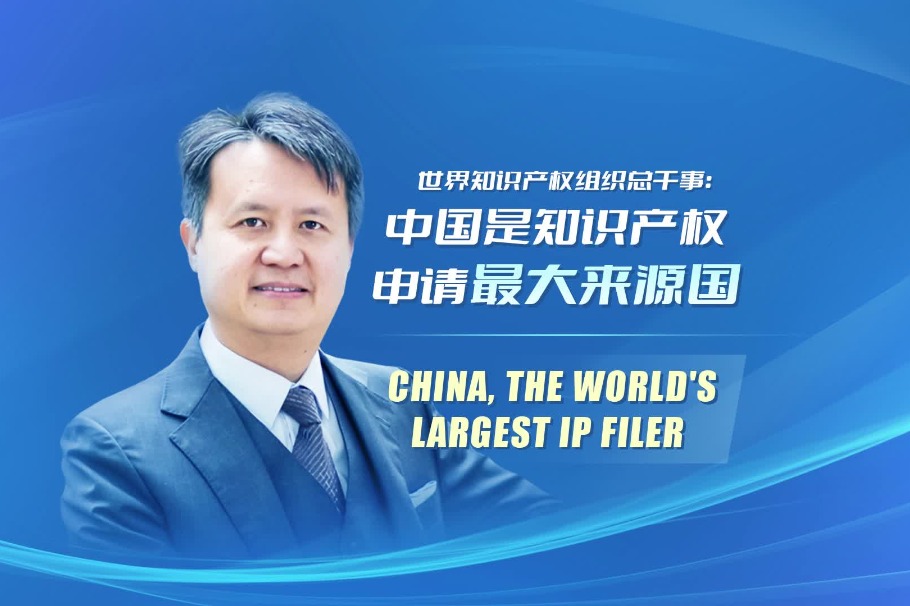India's stance independent on NATO-Russia row
By M.D. Nalapat | CHINA DAILY | Updated: 2022-03-17 07:25
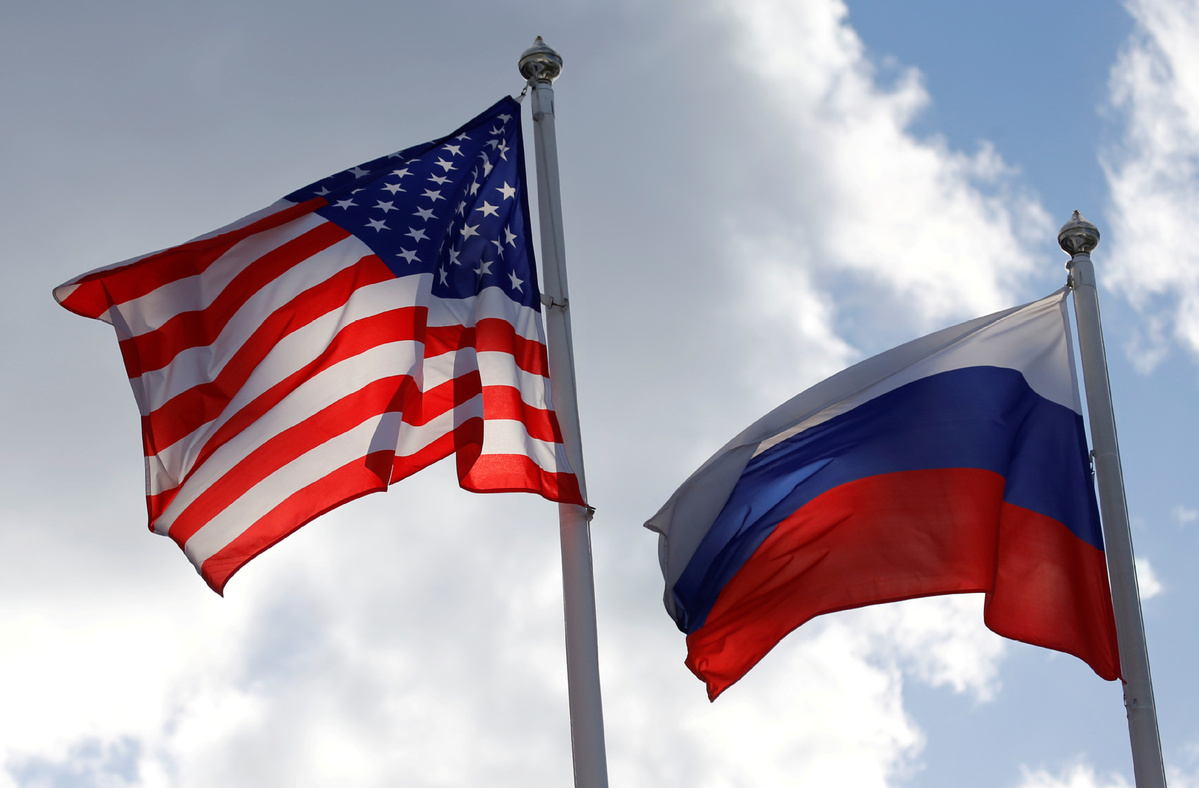
Since September 2021, some leaders of NATO member states had been repeating the error they made in 2014-of saying "post-Maidan revolution" Ukraine could soon join the European Union and NATO. In doing so, they ignored the fact that Russia wanted nothing less than a neutral Ukraine, which Russian President Vladimir Putin had made clear on many occasions.
Many expected President Volodymyr Zelensky not to repeat the mistakes of his predecessor Petro Poroshenko, and announce that Ukraine would not join NATO. But he did not.
After the street protests led to the ouster of the elected government of President Viktor Yanukovych in 2014 and he was called a Kremlin agent, Poroshenko's policies led to the Crimea crisis, and worsened the problems of the Russian-speaking people in the Donbas region, especially in Lugansk and Donetsk, in eastern Ukraine.
Even after Crimea voted in a referendum to join Russia in 2014, neither Ukraine nor NATO heeded the warnings of Moscow. As a result, the domestic political struggle in Ukraine intensified, leading to the Russia-Ukraine conflict on Lugansk and Donetsk in February 2022.
And on Feb 24, Putin ordered the "special military operation" in Ukraine. And again, as in 2014, NATO refused to join Ukraine in a conflict with Russia, even refusing to impose a no-fly zone against Russia, perhaps because Russia is not Iraq or Libya.
Since the United States-led NATO forces had withdrawn from Afghanistan in August 2021 after almost 20 years, they were not ready to confront as powerful a rival as Russia. Yet NATO entered into a "proxy war" with Russia by provoking Kyiv to take on Moscow, in the hope of using the conflict to effect a regime change in Russia.
Led by the US and the United Kingdom, NATO and EU member states imposed sanctions on Moscow aimed at causing a meltdown of the Russian economy and even creating public unrest in the same way that Hosni Mubarak was ousted in Egypt and Yanukovych in Ukraine. The West tried similar tactics in Belarus and Kazakhstan to overthrow sitting governments, but failed in both cases, partly due to the intervention of Russia.
Now, instead of the Russian leadership, several pro-Western governments in other countries face public unrest due to prices rise and supply disruptions caused by the Russia-Ukraine conflict which could lead to their ouster. Asian economies, in particular, have been hit hard by the steep rise in commodity prices caused by the sanctions against Russia.
As a developing country in the process of transforming its economy and lifting millions of people out of poverty, India will suffer the consequences of the Western sanctions against Russia. This is one of the reasons why India is opposed to NATO waging a non-kinetic war against Russia which could become kinetic.
India has its own redline when it comes to international relations, and it will not cross it to support NATO's strategy to counter Russia.
So, it is in the US' interest to establish a working and productive relationship with Russia, instead of pressing India to join it in its proxy war against Russia, in order to end the conflict and prevent the humanitarian crisis in Ukraine from worsening.
Under pressure from the US, both Japan and Australia joined that country in trying to change India's policy toward Russia, but failed. A country of more than 1.3 billion people that for two centuries endured colonial oppression will not allow outside powers, no matter how powerful they are, to make it go against its critical interests.
The special and strategic partnership agreement Russia and India signed in 2000, which was expanded in 2010, will continue to determine Russia-India relations.
US President Joe Biden assumes the world is still stuck in the late 1980s. Why else is he treating Russia even worse than the way the US treated the Soviet Union?
By forcing EU countries to suffer the consequences of the measures designed to punish Russia-just as it did in the case of Iraq, Libya and Iran-Washington is damaging the interests of the European people in order to carry forward its agenda of destroying the strategic and economic potential of the Russian Federation.
India will not join any move by NATO against Russia, which has been made clear to NATO leaders. It is better that Western leaders, especially NATO leaders, realized that not all countries support them in their confrontation with Russia and hence they should let the people of Ukraine and Russia decide their future relations.
The author is a professor of international studies at Manipal University, India. The views don't necessarily reflect those of China Daily.
If you have a specific expertise, or would like to share your thought about our stories, then send us your writings at opinion@chinadaily.com.cn, and comment@chinadaily.com.cn.






